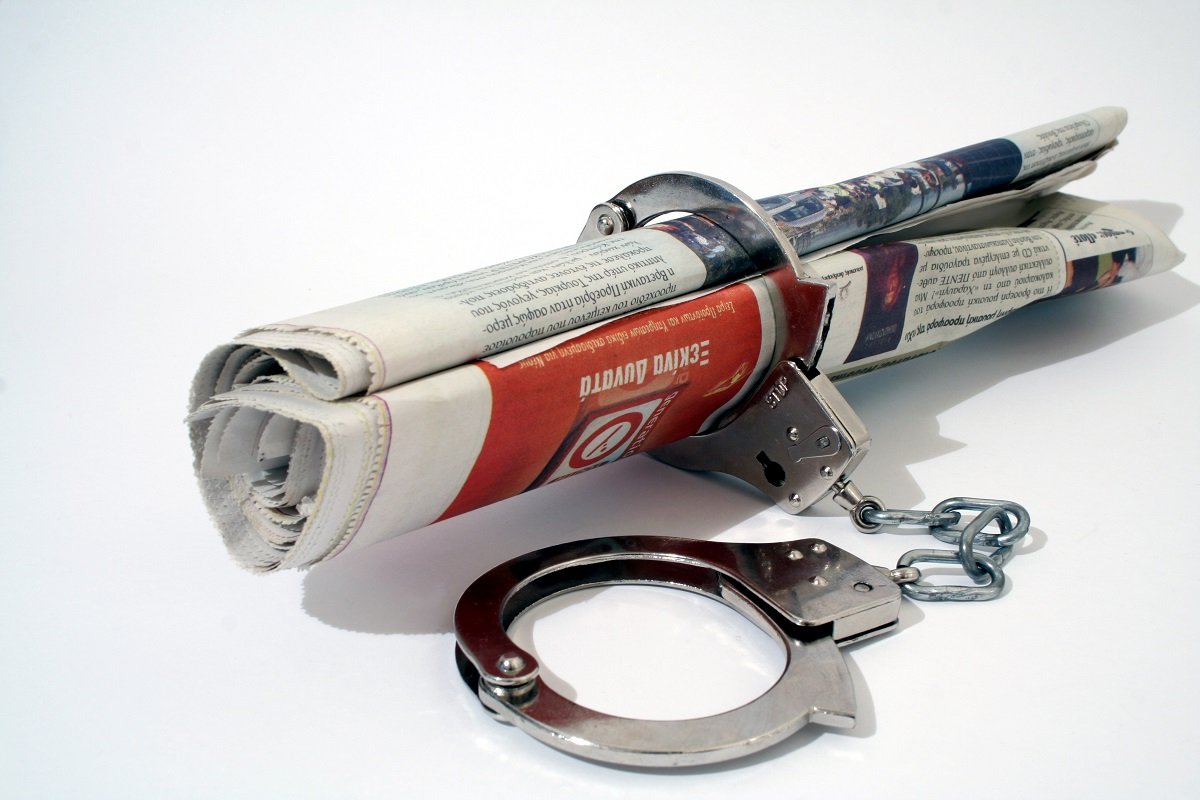PEN International, ARTICLE 19 and 66 other international organizations have issued a statement in which they expressed deep concerns over the continuous deterioration of freedom of expression and media freedom in Turkey following a failed coup attempt on July 15, 2016.
The statement was delivered by Sarah Clarke, an official from PEN International, at the 34th Special Session of the UN Human Rights Council on Wednesday.
The statement said over 180 news outlets have been shut down under laws passed by presidential decree following the imposition of a state of emergency in the aftermath of the coup attempt. The closed-down media outlets include Turkey’s best-selling Zaman daily, which was first taken over by the government in March 2016 and subsequently closed down following the coup attempt.
“There are now at least 148 writers, journalists and media workers in prison, including Ahmet Şık, Kadri Gürsel, Ahmet and Mehmet Altan, Ayşe Nazlı Ilıcak and İnan Kızılkaya, making Turkey the biggest jailer of journalists in the world. The Turkish authorities are abusing the state of emergency by severely restricting fundamental rights and freedoms, stifling criticism and limiting the diversity of views and opinions available in the public sphere,” said the international organizations.
According to the statement, restrictions have reached new heights in the lead-up to a crucial referendum on constitutional reforms, which would significantly increase executive powers, set for April 16, 2017.
“The Turkish authorities’ campaign has been marred by threats, arrests and prosecutions of those who have voiced criticism of the proposed amendments. Several members of the opposition have been arrested on terror charges. Thousands of public employees, including hundreds of academics and opponents to the constitutional reforms, were dismissed in February. Outspoken “no” campaigners have been detained, adding to the overall climate of suspicion and fear. The rights to freedom of expression and information, essential to fair and free elections, are in jeopardy.”
“In the run-up to the referendum, the need for media pluralism is more important than ever. Voters have the right to be duly informed and to be provided with comprehensive information on all views, including dissenting voices, in sufficient time. The prevailing atmosphere should be one of respect for human rights and fundamental freedoms. There should be no fear of reprisals.”
The international organizations urged the council, its members and observer states, “to call on Turkish authorities to guarantee equal broadcasting time for all parties and allow for the dissemination of all information to the maximum extent possible in order to ensure that voters are fully informed; put an end to the climate of suspicion and fear by: Immediately releasing all those held in prison for exercising their rights to freedom of opinion and expression; ending the prosecutions and detention of journalists simply on the basis of the content of their journalism or alleged affiliations; halting executive interference with independent news organizations including in relation to editorial decisions, dismissals of journalists and editors, pressure and intimidation against critical news outlets and journalists; and revoke the excessively broad provisions under the state of emergency, the application of which, in practice, are incompatible with Turkey’s human rights obligations.”
At a time when Turkey ranks the first as the jailer of the most number of journalists, Turkey’s autocratic President Recep Tayyip Erdoğan has reiterated numbers of time that the press freedom in Turkey is more than the press freedom in most Western countries. For example, speaking to the Qatar-based al-Arab newspaper mid-February, Erdoğan denied had claimed that there is regression with regards to the freedoms in Turkey, saying that it is possible to criticize the government in the country.
“The opposition in Turkey can direct the heaviest criticisms against the government through its own media. The closure of some media organs is the result of the rulings of the judiciary. The media outlets which are affiliated with terror [organizations] and make terror propaganda have been closed down,” Erdoğan had said.
In the aftermath of a failed coup attempt on July 15, hundreds of media organizations in the country including newspapers, magazines, news agencies have been closed down on terror charges. With regard to the high number of journalists jailed in Turkey, Erdoğan had said those journalists were not put behind bars due to journalistic activities but because of terrorist activity.
According to an updated report released by Stockholm Center for Freedom, an advocacy group that monitors rights violations in Turkey, on March 1, 2017, the number of jailed journalist has reached to a new record of 200 with new arrestees.
Of these journalists, 179 are arrested pending trial and without a conviction. Most of the journalists do not even know what the charges are or what evidence, if any, the government has because the indictments were not filed yet. Also, over 180 media outlets have been closed by AKP government last year. (SCF with turkishminute.com) March 16, 2017















